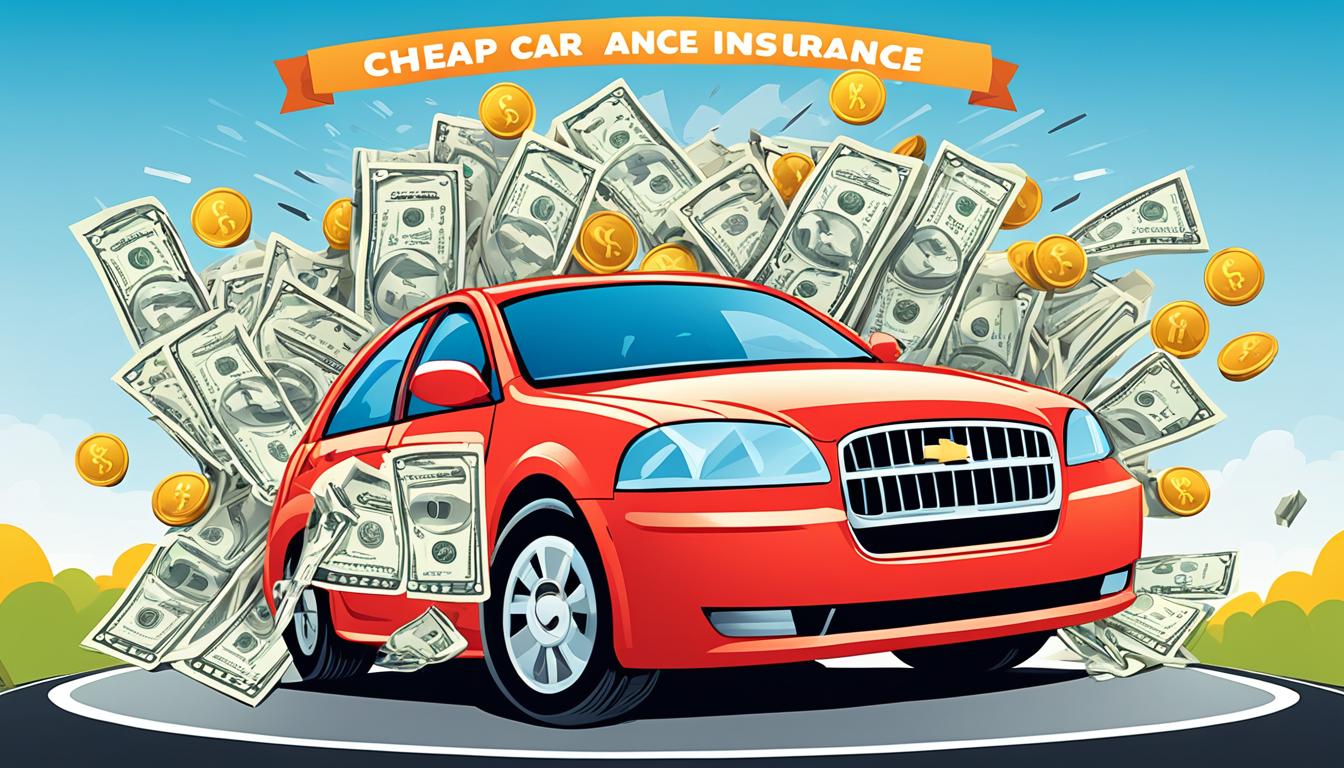When it comes to protecting your vehicle and finances on the road, full coverage car insurance is essential. Whether you want comprehensive auto insurance or are looking for the best and most affordable options, understanding the concept of full coverage car insurance is crucial.
Full coverage car insurance provides comprehensive protection, combining different types of coverage to safeguard you against various risks. It typically includes liability coverage, collision coverage, and comprehensive coverage. These components offer financial protection in the event of accidents, theft, vandalism, and even natural disasters.
Now, finding the best and affordable full coverage car insurance might seem like a daunting task. However, with the right approach, it can be easier than you think. By comparing different insurance providers, considering customer reviews and ratings, and evaluating coverage options and discounts, you can make an informed decision.
Stay informed and stay secure on the road with full coverage car insurance. Let’s dive deeper into understanding full coverage car insurance and how to find the best and most affordable options.
Key Takeaways:
- Full coverage car insurance provides comprehensive protection for your vehicle and finances.
- It includes liability coverage, collision coverage, and comprehensive coverage.
- Full coverage car insurance protects against accidents, theft, vandalism, and natural disasters.
- To find the best and affordable full coverage car insurance, compare insurance providers, consider customer reviews, and evaluate coverage options and discounts.
- Stay informed to make an informed decision and secure the best full coverage car insurance that meets your needs.
Understanding Full Coverage Car Insurance
When it comes to protecting your vehicle and finances, full coverage car insurance is an essential investment. This type of insurance provides comprehensive coverage that goes beyond the minimum required by law, ensuring that you are adequately protected on the road.
So, what exactly does full coverage car insurance entail? Let’s break it down:
Liability Coverage
Liability coverage is a crucial component of full coverage car insurance. It protects you financially in case you are found legally responsible for causing bodily injury or property damage to others in an accident. This coverage not only covers medical expenses and property repairs, but also legal expenses if a lawsuit is filed against you.
Collision Coverage
In the event of a collision with another vehicle or object, collision coverage can help pay for repairs or the replacement of your vehicle. This coverage is particularly important if you have a newer or more valuable car, as it provides financial protection against damages that can be costly to repair.
Comprehensive Coverage
Comprehensive coverage is designed to protect you against a wider range of risks. It covers damages to your vehicle that are not caused by a collision, such as theft, vandalism, fire, natural disasters, and falling objects. With comprehensive coverage, you can have peace of mind knowing that your car is protected from various unforeseen events.
In addition to these coverage components, full coverage car insurance also includes coverage limits and deductibles. Coverage limits determine the maximum amount an insurance company will pay for a claim, while deductibles are the amount you must pay out of pocket before your insurance coverage applies.
Now that you have a better understanding of what full coverage car insurance entails, it’s important to obtain accurate full coverage car insurance quotes to understand the cost involved. By obtaining quotes from multiple insurance providers, you can compare prices and coverage options to find the best policy that suits your needs and budget.
Next, we’ll dive deeper into the specific items and incidents that full coverage car insurance can protect against, including accidents, theft, vandalism, and natural disasters.

Full Coverage Car Insurance Coverage
Full coverage car insurance provides comprehensive protection against a range of risks and incidents, including:
- Accidents: Full coverage car insurance covers damages to your vehicle and the vehicles of others involved in an accident, as well as any resulting medical expenses.
- Theft: If your car is stolen, full coverage car insurance can provide compensation for the replacement or repair of your vehicle.
- Vandalism: In the unfortunate event that your car is vandalized, full coverage car insurance can cover the cost of repairs.
- Natural Disasters: Full coverage car insurance protects your vehicle against damages caused by natural disasters such as hurricanes, tornadoes, floods, and earthquakes.
In a world full of uncertainties, having full coverage car insurance offers peace of mind, knowing that you are protected from a wide range of potential risks and incidents.
Finding the Best and Affordable Full Coverage Car Insurance
When it comes to protecting your vehicle and ensuring peace of mind on the road, full coverage car insurance is the way to go. However, finding the best and most affordable option can be a daunting task. In this section, we will guide you through the process of finding the perfect full coverage car insurance that fits your needs and budget.
Comparing Insurance Providers
One of the first steps to finding the best full coverage car insurance is to compare different insurance providers. Take the time to research and evaluate the options available to you. Consider factors such as the provider’s reputation, financial stability, and customer satisfaction ratings. Look for insurance companies that have a strong track record of providing reliable coverage and excellent customer service.
Additionally, pay attention to the coverage options offered by each provider. Full coverage car insurance typically includes liability coverage, collision coverage, and comprehensive coverage. However, the extent of these coverages may vary among different insurers. Compare the coverage limits and deductibles offered by each provider to ensure you are getting the level of protection you need.
Considering Customer Reviews and Ratings
Customer reviews and ratings can be valuable sources of information when it comes to evaluating insurance providers. Look for feedback from policyholders who have had experiences with the companies you are considering. This can give you insights into the provider’s customer service, claim handling process, and overall satisfaction levels.
Keep in mind that while reviews and ratings can provide helpful guidance, it’s important to consider multiple sources and make your own judgments. Every individual’s experience may differ, so look for patterns and trends to form an accurate assessment.
Evaluating Coverage Options and Discounts
Besides comparing providers, it’s crucial to evaluate the coverage options and discounts available. Some insurers offer additional perks and benefits, such as roadside assistance, rental car reimbursement, or accident forgiveness. These extras can enhance your coverage and provide added value.
Furthermore, inquire about any available discounts that can help reduce your premium. Common discounts include safe driver discounts, multi-policy discounts, and good student discounts. Taking advantage of these savings opportunities can make full coverage car insurance more affordable without compromising your level of protection.
Strategies for Saving Money
Lastly, let’s explore some strategies for saving money on full coverage car insurance. Here are a few tips:
- Consider increasing your deductible: A higher deductible can lower your premium, but keep in mind that you will be responsible for paying more out of pocket in the event of a claim.
- Bundle your insurance policies: Many insurance companies offer discounts when you combine your auto insurance with other policies, such as homeowner’s or renter’s insurance.
- Improve your credit score: Maintaining a good credit score can help lower your insurance premiums as many insurers consider credit history when determining rates.
- Take advantage of usage-based insurance: Some insurers offer telematics programs that track your driving behavior. Safe driving habits can lead to lower premiums.
By implementing these strategies and being proactive in your search for full coverage car insurance, you can find the best and most affordable option for your specific needs.
| Insurance Provider | Coverage Options | Discounts | Customer Rating |
|---|---|---|---|
| Company A | Comprehensive coverage | Safe driver discount, multi-policy discount | 4.5/5 |
| Company B | Liability coverage, collision coverage | Good student discount, anti-theft device discount | 4.2/5 |
| Company C | Comprehensive coverage, roadside assistance | Multi-car discount, accident-free discount | 4.9/5 |
| Company D | Liability coverage, collision coverage, comprehensive coverage | Safe driver discount, bundling discount | 4.7/5 |
Conclusion
In conclusion, full coverage car insurance provides extensive protection for both your vehicle and your finances. By familiarizing yourself with the various components and coverage options available, you can make informed decisions that meet your specific needs.
One key aspect of securing the best full coverage car insurance is comparing quotes from different insurance providers. This allows you to assess the cost and benefits of each policy, ensuring you find the most affordable option while still receiving comprehensive protection.
Additionally, choosing the right insurance provider is crucial. Look for reputable companies with strong customer reviews and ratings. Consider their track record in handling claims and their approach to customer service. This will help you find a reliable partner who will support you in case of an accident or other unforeseen circumstances.
Remember, full coverage car insurance is not just about meeting legal requirements but providing peace of mind on the road. By being proactive in understanding your coverage and evaluating your options, you can make sure you are well-protected and prepared for the unexpected. Drive safely and confidently with the best and most affordable full coverage car insurance.


